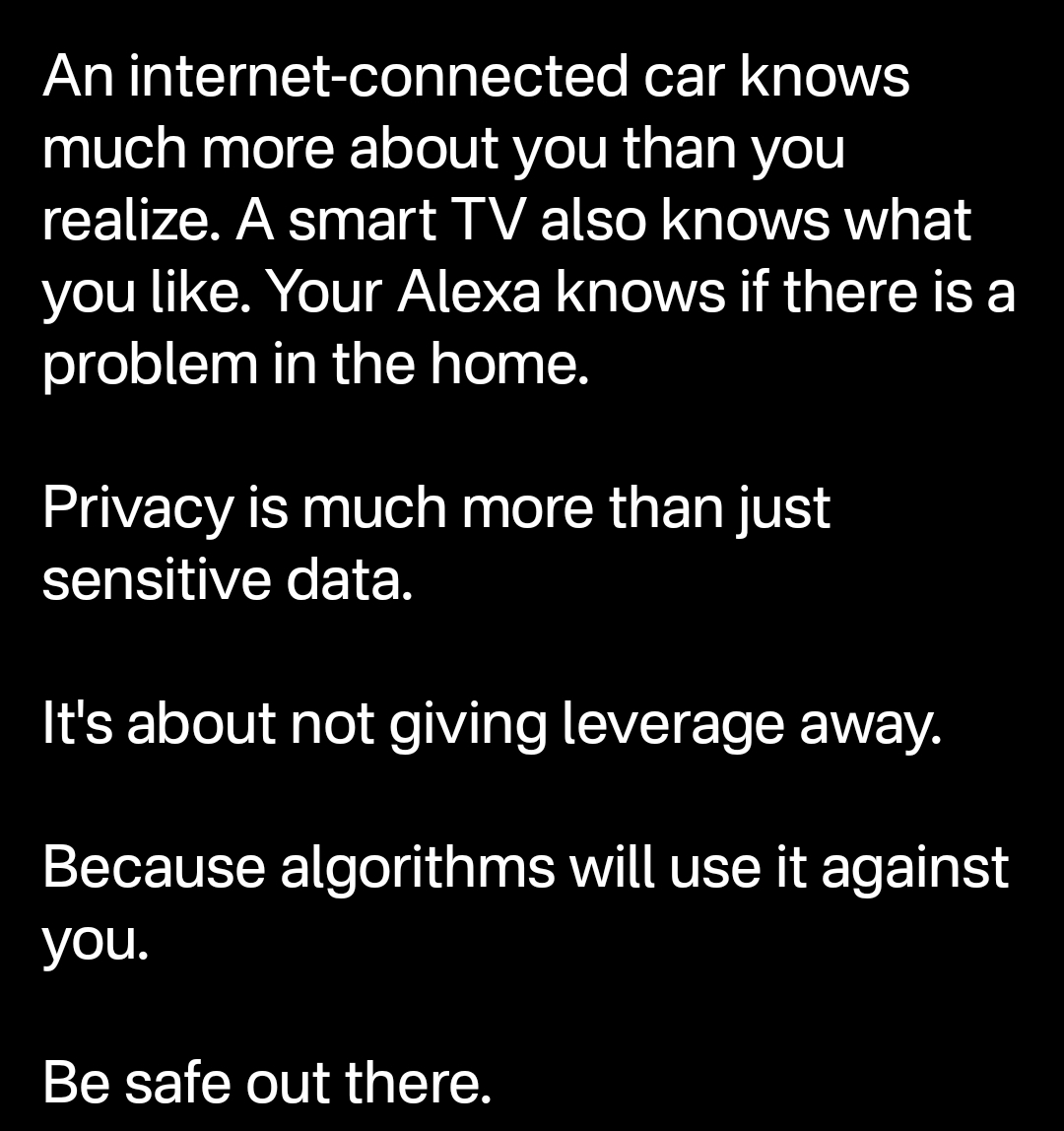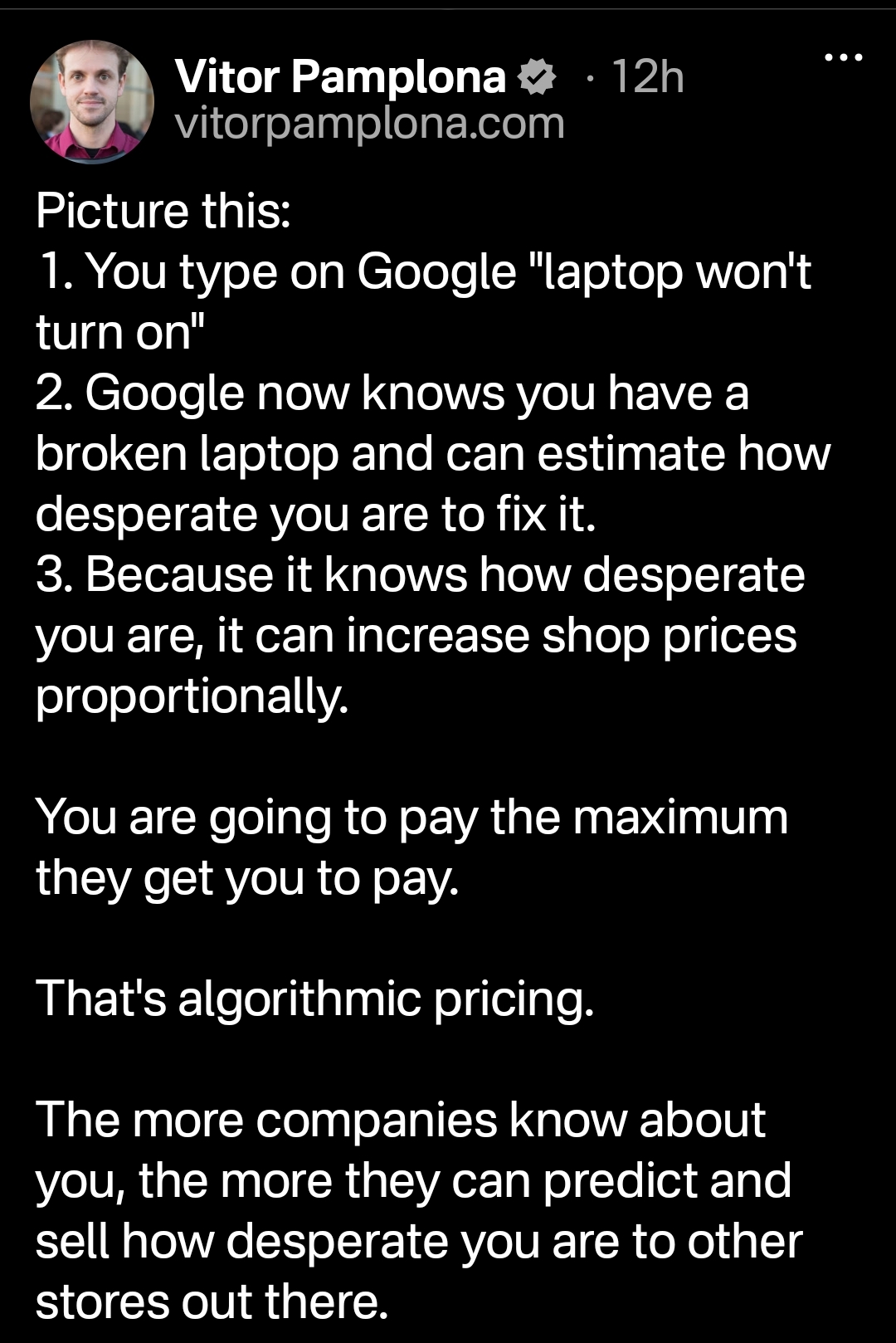I don't know how accurate this is. Every time i try googling this, i get multiple help forums (brand website, Microsoft help, reddit discussions) for how to troubleshoot, with no ads for new laptops. While i typically provide a more specific search (e.g. my laptop brand and model won't boot), i tried googling "my laptop won't turn on" and received similar, albeit less specific, suggestions.
I wonder if the original poster often searches for laptop prices to find deals and maybe it defaulted to that?

